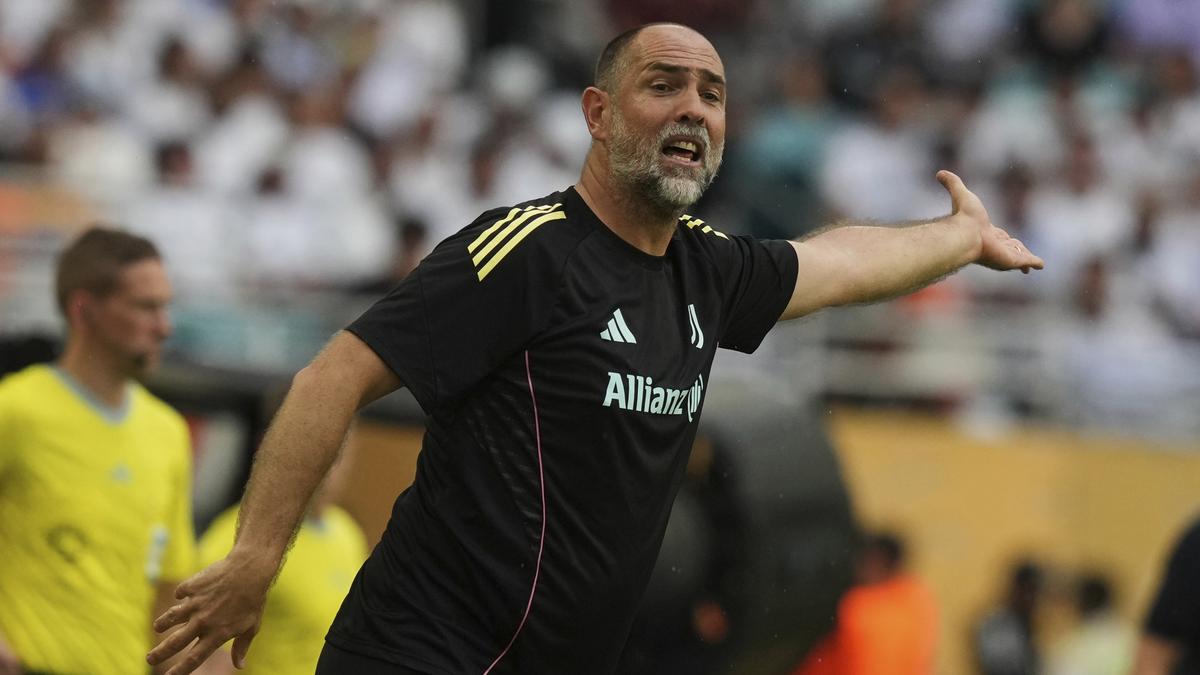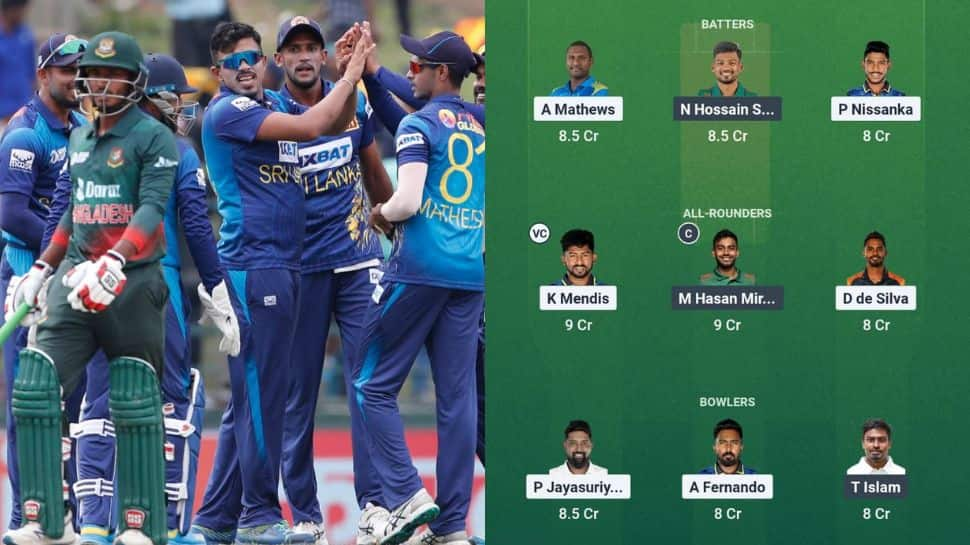EXCLUSIVE — AIFF president Kalyan Chaubey: We must evaluate if we had a structured youth development system 10 years ago
With rankings tumbling, results fading, and the ISL’s future uncertain, Indian football faces a reckoning.
In an exclusive interview with Sportstar, AIFF president Kalyan Chaubey shares his vision to spark a revival.
What is the AIFF’s strategy to improve India’s FIFA ranking?
To improve our FIFA ranking, the National Team must win matches, and for that, it has to score goals. In the last 16 matches, the senior men’s team has managed only one win (3-0 vs Maldives) and scored just seven goals, averaging less than 0.5 goals per game.
The AIFF can only facilitate, strategise and ensure the National Team plays in every FIFA window. Camps, training sessions, and opponents are selected based on inputs from the Chief Coach.
India’s age-group teams have also failed to qualify for the FIFA U-17 or U-20 World Cups or even continental tournaments. How can this be fixed?
Youth development must begin early. Players under 11 should be exposed to football to build basic technique. By 12–13, they should be preparing for competition; 14–15 is for regular match play. Ages 16–17 are for high-performance training, and by 18–20, players should be transitioning to professional setups.
Evaluating the ones who are playing today, we must ask: Did we have a structured youth development system 10 years ago? If not, we must ensure today’s youngsters don’t face the same gap.
The new MRA draft from FSDL proposes a 10-year moratorium on promotion and relegation in the ISL. Doesn’t this violate the 2019 roadmap signed with the AFC?
FSDL submitted the proposal on March 5, and it was discussed in our Executive Committee meeting on April 7. A counter-proposal was then sent to FSDL.
Since the matter is sub judice, I cannot comment further.
Why is the ISL not listed in the AIFF’s official calendar?
FSDL has yet to officially announce ISL’s start and end dates. However, the normal period for the league is between September and March.
What is the update on including PIO/OCI players in the national team? Can you share the names of the 33 shortlisted players?
Overseas Citizen of India (OCI) and Person of Indian Origin (PIO) cardholders are foreign nationals granted limited social and economic rights in India. However, since India does not recognise dual citizenship, these cards do not confer Indian nationality.
Cardholders often have strong ancestral ties to India — through parents, grandparents, or prior residence — which can influence sporting eligibility and, in some cases, allow for national representation.
We are exploring how PIO/OCI players can align with FIFA statutes, Indian citizenship laws, and the national sports policy.
This is an ongoing process, and until we receive clarity from FIFA and the Government of India, we cannot disclose any names.
What are AIFF’s plans for the Indian Women’s League (IWL)?
The IWL is growing, with expanded participation, the launch of IWL 2, and initiatives like Asmita. Our goal is to widen the talent pool and strengthen the ecosystem.
Many ISL players underperform at the national level despite high salaries from their clubs. Is AIFF considering salary caps?
Player salaries are contracts between clubs and individuals. The AIFF cannot intervene in these matters.
The Supreme Court verdict on the AIFF constitution is due on July 18. How will the AIFF respond?
The Supreme Court is the highest authority in our country. The AIFF will fully abide by any judgment it delivers.
Several clubs have opted out of the Durand Cup. What is AIFF’s roadmap for this tournament? And what’s the status of the Federation Cup? Will it replace the Super Cup?
The Durand Cup is organised independently by the Indian Army. AIFF will continue to support it with technical assistance and a tournament slot.
The Super Cup continues as planned, and its scheduling will depend on the finalised league (ISL) calendar.
Arsene Wenger’s India visit may help reboot how the country grooms its next football generation.
| Photo Credit:
BISWARANJAN ROUT
Arsene Wenger’s India visit may help reboot how the country grooms its next football generation.
| Photo Credit:
BISWARANJAN ROUT
What did you take away from your recent meeting with Arsene Wenger?
I learned about a new FIFA 8v8 Under-15 competition to be played on half-sized pitches, designed to improve ball control and build-up play. India will participate in this initiative.
Mr. Wenger also stressed that beginning football at 13 is too late — players should start by age eight. In India, most children begin around 12–13. Through the Golden Baby League and Blue Cubs, we are trying to change that and encourage earlier participation.
Is there a long-term plan for youth coaching and talent scouting?
We currently have 16,696 AFC/AIFF-licensed coaches and 3,29,945 players registered under the CRS system. This season, we’ve organised 1,697 matches.
League participation has increased, but we still need more licensed coaches actively involved at the grassroots level. To address this, AIFF is identifying 500 coaches for retraining and deployment across India. The first phase was held in Bhubaneswar with 54 coaches.
Many states lack structured leagues and are affected by factionalism and court cases. What is the AIFF doing to enforce league schedules and timely elections?
Sponsorship at the state level remains difficult. Without consistent financial backing, long-term planning suffers.
Each State/UT Association has its own constitution and operates under it. However, court cases are a major hurdle— whenever factions lose elections, they often resort to litigation.
Currently, there are nearly 275 sports-related court cases in which the Indian Olympic Association is involved.
At the start of your tenure, you prioritised grassroots development over hosting major events. Why did AIFF then bid for the 2031 AFC Asian Cup? Has the vision changed?
The vision hasn’t changed. Multiple areas must grow together — grassroots development, international hosting, coach/referee education, and structural support. All these components must move forward together to build a strong football.
The FIFA–AIFF TDS Academy has already made an impact at the U-15 level and in IWL-2. We plan to launch more such academies in the coming months.
Secondly, when we hosted the U-17 Women’s World Cup, we lost our first match 0-8 against the USA. This clearly showed that our preparation was not adequate.
The AIFF’s EC Meeting on November 16, 2022, stated “AIFF decided to withdraw its bid (for Asian Cup 2027) due to infrastructure delays, a strong competing bid from Saudi Arabia, and concerns over team preparedness. A cost-benefit analysis showed a negative return, with an estimated investment of Rs. 5,000 crores needed for stadiums, facilities, and tournament operations. Therefore, a practical collective decision has been taken to bid for 2031 AFC Asian Cup with better preparation.”






